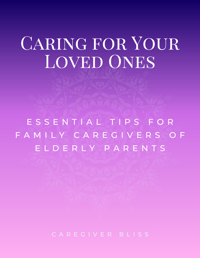Understanding Aphasia in Elderly Parents

As we grow older, our bodies and minds undergo various changes, and it's not uncommon for our elderly parents to face certain health challenges. One of these challenges is aphasia, a condition that affects a person's ability to communicate effectively. In this article, we will explore what aphasia is, its causes, and how to recognize the signs in your elderly parent.
What Is Aphasia?
Aphasia is a communication disorder that can affect speaking, listening, reading, and writing skills. It often occurs as a result of brain damage, such as a stroke or head injury. Aphasia can be temporary or long-lasting, and its severity can vary from person to person.
Common Causes of Aphasia
- Stroke: The most common cause of aphasia is a stroke. When the blood supply to a part of the brain is interrupted, it can lead to damage in the language centers, causing communication difficulties.
- Head Injury: Severe head injuries can also result in aphasia if they damage the brain's language areas.
- Brain Tumors: In some cases, brain tumors can put pressure on the language centers of the brain, leading to aphasia.
- Progressive Brain Disorders: Conditions like Alzheimer's disease can gradually affect language skills over time.
Recognizing Signs of Aphasia
Identifying aphasia in your elderly parent is essential for early intervention and support. Here are some common signs to watch out for:
- Difficulty Finding Words: If your parent frequently struggles to find the right words when speaking, it could be a sign of aphasia. They may pause or use incorrect words to express themselves.
- Trouble Understanding: Aphasia can make it challenging for individuals to understand spoken or written language. Your parent might have difficulty following conversations or reading.
- Speech Changes: You may notice changes in your parent's speech, such as speaking slowly, incoherent sentences, or unusual grammar.
- Writing Problems: Aphasia can also affect writing skills. Your parent might struggle with spelling, sentence structure, and written expression.
- Frustration and Emotional Changes: Coping with aphasia can be frustrating, and your parent may experience increased stress, anxiety, or depression due to communication difficulties.
Supporting Your Elderly Parent with Aphasia
If you suspect that your elderly parent has aphasia, it's crucial to seek professional help. Speech-language therapy is a primary treatment for aphasia and can significantly improve communication skills. Here are some tips for supporting your parent:
- Consult a Healthcare Professional: Schedule an appointment with a speech-language pathologist or neurologist to assess your parent's condition and develop a tailored treatment plan.
- Be Patient and Encouraging: Communication with someone with aphasia can take time and patience. Encourage your parent to express themselves without rushing or finishing their sentences.
- Use Visual Aids: Visual cues, like pictures or gestures, can assist in communication and understanding.
- Simplify Communication: Use clear and straightforward language when talking to your parent. Avoid complex sentences or jargon.
- Join Support Groups: Consider joining a support group for caregivers and individuals with aphasia. Sharing experiences and strategies can be valuable.
Conclusion
Recognizing aphasia in your elderly parent is the first step toward providing the support and care they need. While aphasia can be challenging, with the right treatment and understanding, your parent can continue to engage in meaningful communication and maintain a high quality of life. Seek professional help, be patient, and offer love and encouragement throughout their journey with aphasia.
We'd love to hear from you! Have you or a loved one experienced aphasia? Share your experiences, insights, or questions in the comments below. Your input could provide valuable support and guidance to others going through similar challenges.
 Attention family caregivers! Are you struggling to provide the best care for your aging parents? Don't worry, we've got you covered.
Attention family caregivers! Are you struggling to provide the best care for your aging parents? Don't worry, we've got you covered.
Download our free guide, Caring for Your Loved Ones: 10 Essential Tips for Family Caregivers of Elderly Parents, and unlock the secrets to becoming an exceptional caregiver.
From adapting the home environment to promoting independence, this invaluable resource will transform your caregiving experience into a more rewarding journey. Don't wait—give your loved ones the care they deserve, and download your free copy today!
